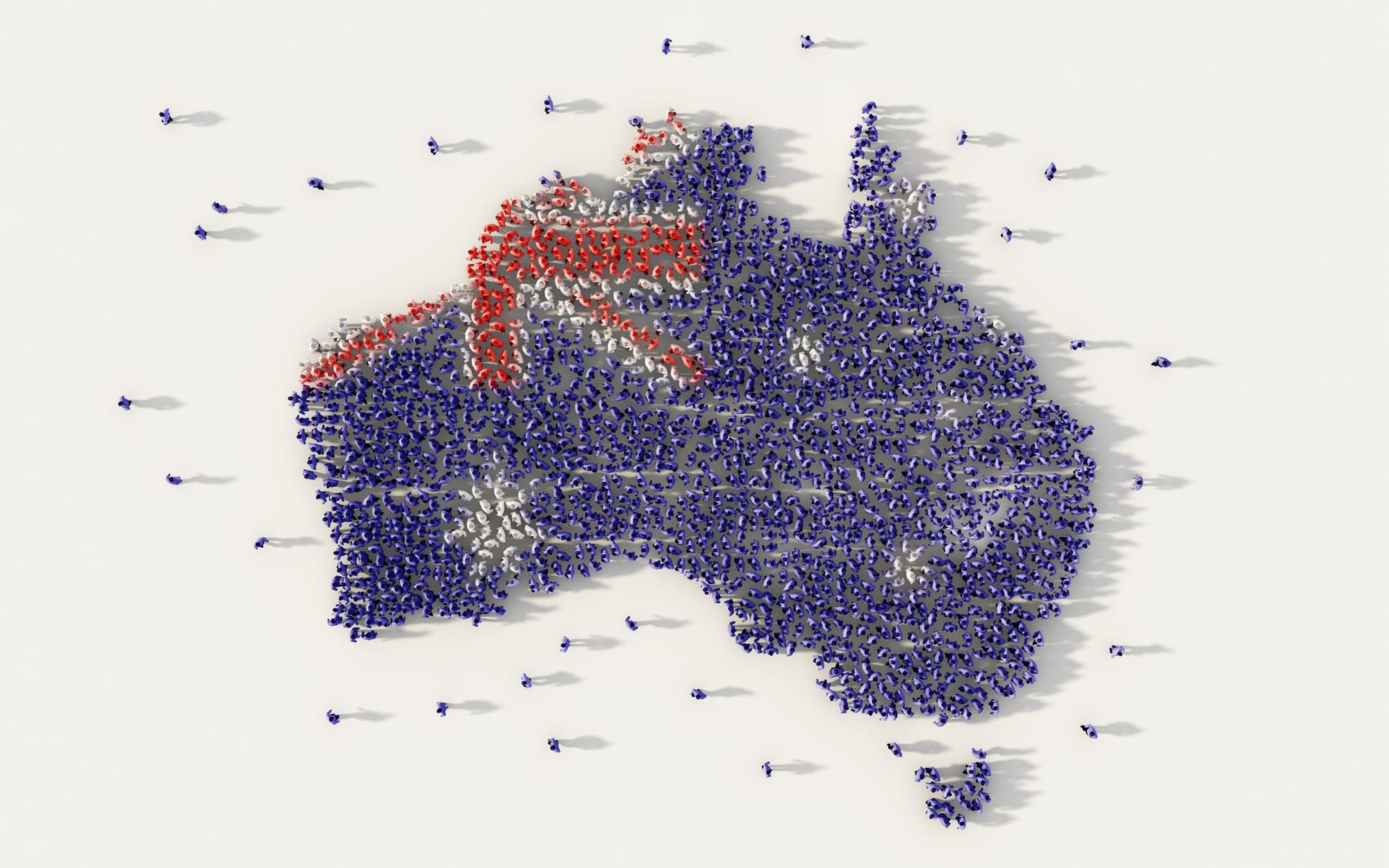
The fact that altering the Australian Constitution requires a vote by the Australian people means that Voice to Parliament referendum will become a vote about Australian nationhood.
This also means that the underlying question of the referendum is value-laden rather than strictly constitutional: What kind of nation does Australia want to be on the morning after the vote?
This discussion about nationhood is part of the logic of creating a winning coalition out of diverse constituencies that on their own are not big enough to secure a “yes” vote. But it should also be embraced tactically by the Yes campaign to counter claims that the Voice is divisive.
Progressives tend to be wary of the politics of nationhood. But this doesn’t mean this political terrain should be abandoned to the forces of reaction.
Nationhood is something that conservatives are far more comfortable with than their progressive compatriots. For conservatives, nationhood is not a problematic category. Instead it speaks to unity, togetherness, and a purpose higher than that of the individual.
Read more: The Voice: What is it, where did it come from, and what can it achieve?
It is for this reason that the No campaign has pitched many of its arguments in the frame of unitary nationhood. The message that enshrining a specific form of representation for a particular group in the constitution is divisive resonates with deep-rooted Australian notions of egalitarianism.
So, No campaign strategists are sticking with this argument as an important corollary to the “Don’t know, vote no” message.
Criticisms of the (very small) sums spent on Welcome to Country ceremonies in the past financial year speak to the emergent “national conservative” base in parts of Australia. But the idea that the Voice contradicts Australian egalitarianism is a heavy-hitting argument, presumably with much wider traction among undecided voters.
Sporting legend Eddie Betts has thrown his support behind the Yes vote saying it will open a pathway to be included in decision-making on issues that affect local Indigenous communities. #Yes23 pic.twitter.com/aDIx6hSbhH— Yes23 (@yes23au) July 22, 2023
For this reason, the Yes campaign would be well-advised to contest this vision of Australian nationhood with a vision of its own. That vision should be inclusive, tolerant and open to plural understandings of sovereignty.
Crucially, these values should not be opposed to the idea of Australian nationhood, but made central to it.
We saw that inclusive, tolerant and pluralistic Australia during the Women’s World Cup. Of course, sport and politics are very different things. But the positive energy around support for the Matildas shows there’s a desire for Australia to present an inclusive vision to the world and, importantly, to ourselves.
This vision of Australia is there to be mobilised for positive change that represents an important step towards justice for Indigenous peoples. Justice in the Australian idiom translates to “fairness”. This language about Australia as a “fair nation” will be amplified as we approach the final weeks leading up to the referendum.
Emphasising fairness doesn’t mean denying there’s racism in Australia. It means acting in a way that seeks to work with the grain of Australian nationhood to win undecided small-c conservative voters to the cause of the Voice.
And it shouldn’t be forgotten that referendums are ultimately a numbers game. Every vote counts. This makes the creation of the “winning coalition” – a sometimes unusual alliance of voters who wouldn’t otherwise vote in similar ways – especially important.
And it's on! October 14 is your chance to vote Yes for recognition at the Voice Referendum.
Over the next six weeks, we'll be having thousands of conversations to support recognition.
Will you help Australia say Yes? 👇👇 #voteyes #VoiceToParliament pic.twitter.com/fGDJoSy0zy— Linda Burney MP (@LindaBurneyMP) August 30, 2023
Not everyone thinks about politics all the time. Their engagement may be focused only a few weeks, days, or even hours prior to a vote. This means positive messages about inclusive nationhood, for Indigenous Australians, descendants of settlers, or more recent migrants, can act as an important way to bring undecided voters to the side of change right up to polling day.
Progressives, millennials, centrist conservatives – and not least Indigenous peoples – cannot form a winning coalition in Australia on their own to pass a double-majority referendum. Potential “yes” voters from different backgrounds need a unifying vision to bind them in a temporary alliance to win the referendum, after which they can go their usual political ways.
Visions of inclusive nationhood will become the vehicle for such an alliance. They will create positive connections between diverse voters across Australian society, and bring centrist voters to the “yes” camp.
If this sounds naïve, then that may be a price to be paid for winning the vote. Politics is about compromise. Lost referendums in other countries – notably the Brexit referendum in the United Kingdom – suggest that leaving the potent force of nationhood to the opposition is to provide it with an open goal.
Harnessing nationhood may sound like riding the tiger to some people. There are, of course, grounds to be wary of nationalism. But nationhood is largely an empty vessel. It can be filled with diverse ideologies and messages, and not just illiberal ones.
It’s been famously described as “Janus-faced”, meaning that like the Roman god of time, transitions and doorways, it faces forwards and backwards – it can be progressive as well as regressive.
Framing the Voice referendum in the politics of Australian nationhood will help position the Yes campaign in the “sensible centre” of the debate. It will complicate the No campaign’s promotion of a reactionary vision of Australia. It will help shape the nation that we want to be the day after the vote.

This article originally appeared on The Conversation.





